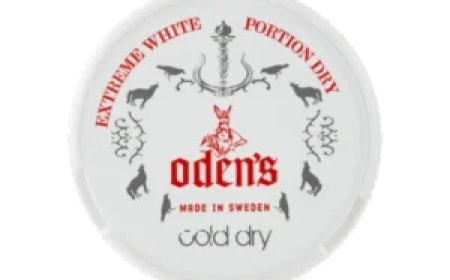The Truth About Processed Foods and How to Avoid Them
Processed foods might be convenient, but they are not doing your health any favors. The more you replace them with whole, natural foods, the better you will feel. Your body deserves real food that nourishes and fuels it

What Are Processed Foods?
Processed foods are everywhere. They fill grocery store shelves, fast-food menus, and even our kitchen cabinets. But what exactly are they? Simply put, processed foods are any foods that have been altered from their natural state. This could mean adding preservatives, sugars, artificial flavors, or even stripping away nutrients. While not all processed foods are bad, many are loaded with unhealthy ingredients that can harm your health over time.
Why Are Processed Foods Bad for You?
Many processed foods contain too much sugar, salt, and unhealthy fats. These ingredients make food taste good and last longer, but they also contribute to weight gain, high blood pressure, and other serious health problems. Some processed foods also contain artificial additives that can negatively affect digestion, metabolism, and even mental health.
The problem is that processed foods are often designed to be addictive. They are made to keep you craving more, which can lead to overeating and poor nutrition. The more you eat processed foods, the less room you have for fresh, whole foods that actually nourish your body.
Signs That a Food is Highly Processed
Not sure if something is highly processed? Here are some clues:
It comes in a package with a long ingredient list full of things you cannot pronounce.
It contains added sugars, artificial sweeteners, or preservatives.
It has a long shelf life because of added chemicals.
It is stripped of fiber and nutrients, like white bread or sugary cereals.
It contains artificial colors and flavors.
The Dangers of Processed Foods
Eating too many processed foods can lead to a variety of health problems, including:
Weight Gain Processed foods are often high in empty calories, meaning they provide little to no nutritional value. They are also low in fiber, which makes it easier to overeat.
Heart Disease Many processed foods contain trans fats, excessive salt, and added sugars, all of which increase the risk of heart disease.
Diabetes Sugary and refined foods cause blood sugar spikes, leading to insulin resistance and increasing the risk of type 2 diabetes.
Digestive Problems Artificial additives and preservatives can disrupt gut health, leading to bloating, gas, and other digestive discomforts.
How to Cut Back on Processed Foods
The good news is that you do not have to give up all processed foods overnight. Small, simple changes can help you reduce your intake and make healthier choices. Here is how you can do it:
Eat More Whole Foods Focus on fresh fruits, vegetables, whole grains, and lean proteins. These foods provide essential nutrients without harmful additives.
Read Food Labels If you cannot pronounce most of the ingredients on a label, it is probably best to avoid that food. Look for products with simple, natural ingredients.
Cook More at Home Homemade meals give you complete control over what goes into your food. Try making simple meals with fresh ingredients instead of relying on packaged or fast food.
Swap Processed Snacks for Healthier Options Instead of chips, eat nuts or fresh fruit. Instead of sugary granola bars, try yogurt with honey and seeds.
Drink More Water Many processed drinks, like sodas and flavored coffees, are loaded with sugar. Replace them with water, herbal teas, or homemade smoothies.
Final Thoughts
Processed foods might be convenient, but they are not doing your health any favors. The more you replace them with whole, natural foods, the better you will feel. Your body deserves real food that nourishes and fuels it. Start making small changes today, and before you know it, you will be eating better and feeling healthier. What processed food do you plan to cut out first?
For More Details : chronicdiseasenutritionbynirmala





































